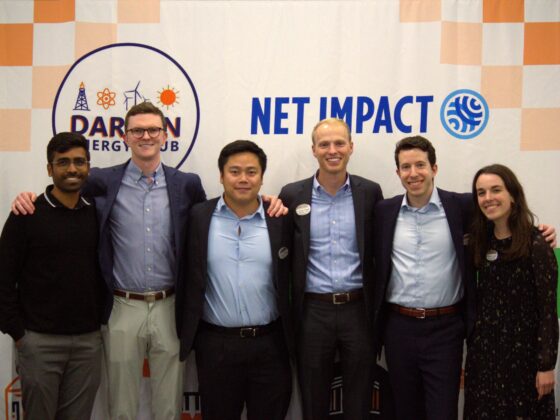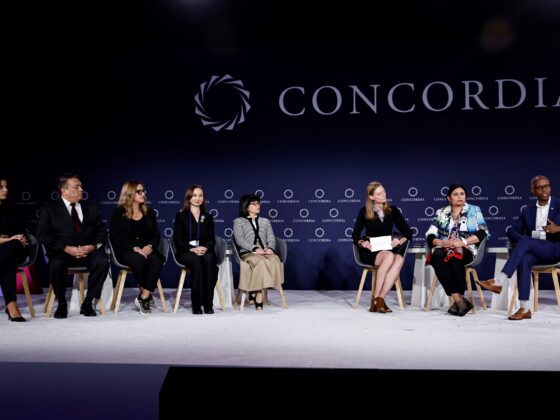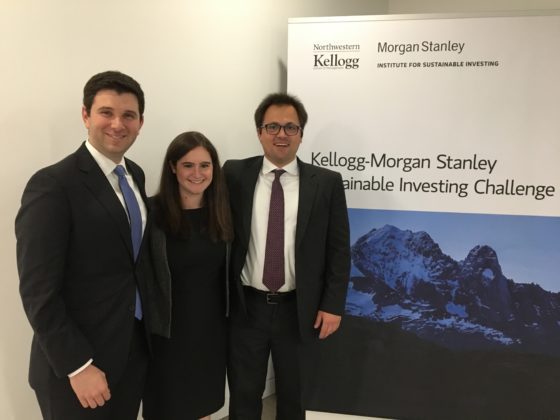By Erika Herz, Associate Director of Sustainability Programs
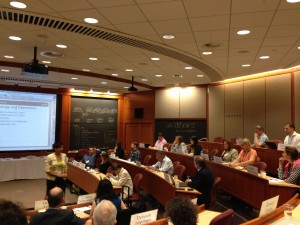
Sustainability Centers, Institutes and Initiatives (“centers”) are an important nexus between academia, corporations, government and NGOs working to solve sustainability challenges. Thus, center directors have a unique perspective on how to achieve impact, which is one reason why the Business and Environment Initiative at Harvard Business School (HBS BEI) and the Network for Business Sustainability (NBS) organized this terrific workshop I attended in June. I represented two organizations, Darden’s Institute for Business in Society and the Alliance for Research on Corporate Sustainability (ARCS), a consortium of 19 universities advancing corporate sustainability research.
Who would have thought that a workshop for sustainability center staff and faculty would be quickly oversubscribed? But that is what happened. Clearly there is a need for those in this role to share best practices. 60 of us convened in an HBS classroom for a series of roll-up-your-sleeves sessions on how to further integrate sustainability and social impact topics into our respective business school offerings.
We tackled the areas below, which give you a sense of what centers do. For each we identified: 1) Key questions and challenges; and 2) Best practices and good ideas.
AREAS
1. Teaching and Curriculum
- How do we best integrate sustainability as a critical business lens into the MBA curriculum in required and elective courses, as well as Executive Education?
- What are best practices for experiential curriculum, field projects, and cases developed with companies?
(For Darden, see a recent article on global field projects for sustainability here, and a recent piece on a sustainability case we wrote with Walmart here.)
2. Research
- What are the trends in business sustainability over the next 10-15 years?
- How do we develop a long-term research strategy and robust faculty network for sustainability research, focused on our schools’ respective strengths?
3. Outreach
- How do we get research into the hands of business leaders who can put these learnings into practice?
- How do we connect students interested in sustainability and social impact with the appropriate companies for internships and jobs?
4. Center Strategy and Operations
- How do we successfully fund and effectively operate sustainability centers to leverage existing intellectual capital and corporate relationships?
- How do we effectively partner with, and serve our alumni?
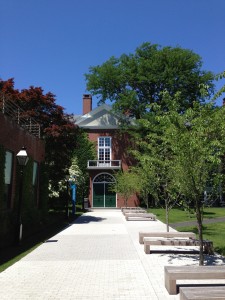
I especially liked the “Collaboration Open Mic,” an innovative format in the workshop which allowed us to suggest topics real-time, gather with a group of interested colleagues, and develop a set of recommendations and goals. My group began sharing our schools’ lists of sustainability topics that we thought all students should learn. We considered the viability of business school accreditors such as the AACSB including sustainability competencies in their evaluations of MBA programs.
A corporate perspective was also present in the workshop, with representatives from 3M, BASF, Mahindra Sanyo Special Steel and TD Bank discussing What Corporations Need from Business Schools – And What They Can Offer. HBS Professor Michael Toffel (@MikeToffel), winner of the 2014 ARCS Sustainability Scholar Award, facilitated.
Overall, the big question we all had was: how do we prioritize our activities, especially when students regularly bring interesting new ones to our attention.
We discussed that activities should fit the following criteria:
-
- Have a positive impact on tackling global issues like poverty and climate change
- Align with our school and center’s missions
- Inspire a critical mass of our faculty to engage
- Be able to be funded.
Thank you NBS and HBS BEI for giving the sustainability center community a chance to collaborate and enjoy each other’s company. Check out the NBS website later this month for a report on all that we discussed in case it is helpful to your work.


